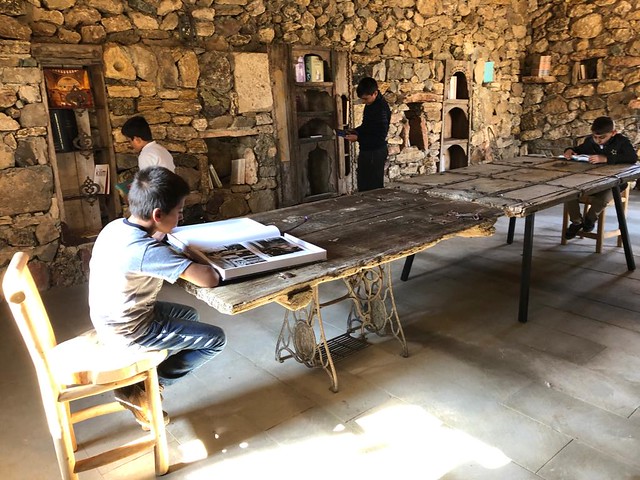Kenan Yavuz Ethnography Museum
The Kenan Yavuz Ethnography Museum is a family founded non-profit organisation that is based in Bayburt, Turkey. The Museum aims to preserve and revive the tangible and intangible cultural heritage of Bayburt and Anatolia by providing interactive experiences to its visitors that are designed and delivered in collaboration with the local community. The cost of building and maintenance of the museum was funded by its founder Kenan Yavuz and is supported by entrance fees paid by visitors.
The Kenan Yavuz Cultural Centre was founded in 2012 to preserve the Yavuz family’s inherited items and in response to the rapid loss of population in the area and, therefore, a decline in the practice of heritage in the area. The local community soon began to donate their own heirlooms to the collection, and this organic growth led to the founding of the ethnography museum.
Consisting of 26 separate spaces across a field of 15,000 m2, visitors can see how a traditional tandoor and water mill work, pray at the mosque, browse through books at the library or just play and relax. Each of its exhibited items have a story of an individual and/or family that has a memory attached to it, which are all tagged and digitised. The village house, for instance, is a replica of the founder’s house in which he was born and grew up.
A wide variety of activities are offered, such as daily culinary demonstrations and workshops, music and dance workshops, a festival of traditional children’s games and a harvest festival, among others. Lectures on crafts, farming and endemic plants are among many activities the public can attend and enable the local villagers to connect with the visitors.
Up until World War I, the Bayburt region’s population was mainly Armenian and Roum. The Kenan Yavuz Ethnography Museum has supported the restoration of many historic sites regardless of ethnicity or background, including the restoration of an Armenian fountain, which has now been reopened to the public and which the museum worked to have registered as a heritage monument with the Turkish Ministry of Culture. The museum also documented the Armenian names of all villages (which were converted to Turkish after the foundation of the Republic in 1923) and will be carving the names to a wood ceiling which will be implemented in the library in September 2022.
“This grassroots initiative has enjoyed great support from its surrounding community and has succeeded in raising awareness of the value of the cultural heritage to this part of Turkey. Special attention was paid to empowering the local community in the cultural activities and the building of the collection. This is a strong example for other rural areas which have suffered population decline,” noted the Awards’ Jury.
More information
www.kenanyavuzetnografyamuzesi.org/en

